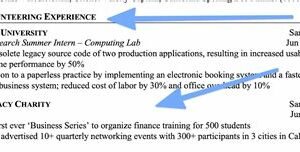Table of Contents
The Juvenile Volunteer Program offers young individuals the opportunity to make a positive impact in their communities through volunteering. By joining this program, participants can gain valuable skills, develop leadership qualities, and contribute to various causes. Engaging in meaningful activities, they can learn the importance of giving back and become responsible citizens of tomorrow.
The Juvenile Volunteer Program is an exceptional initiative that aims to make a positive impact on the lives of young individuals. By engaging adolescents in meaningful volunteer work, this program not only nurtures their personal growth but also instills in them a sense of responsibility and empathy towards others. Moreover, participating in this program provides an invaluable opportunity for juveniles to develop crucial life skills while shaping their character in a transformative way. Through various volunteer activities, such as mentoring younger children or assisting in community outreach projects, these young volunteers not only contribute to their communities but also gain valuable experiences that will shape their future endeavors.
The Importance of Juvenile Volunteer Programs
Volunteering is a valuable experience for individuals of all ages, but it holds particular significance for young people. Engaging in volunteer work during their formative years can have a profound impact on their personal growth and development. One such program that focuses on the involvement of young volunteers is the Juvenile Volunteer Program. This article aims to shed light on the significance of these programs and the benefits they offer to both the community and the participating juveniles.
Building Empathy and Compassion
The Juvenile Volunteer Program provides an opportunity for young individuals to step outside their comfort zones and engage with people from diverse backgrounds. By working alongside individuals who are less fortunate or facing challenges, participants develop empathy and compassion. They gain a deeper understanding of the struggles faced by others and become more inclined to help those in need.
Fostering a Sense of Responsibility
Engaging in volunteer work at a young age instills a sense of responsibility in participants. Through their involvement in community service, they learn the importance of giving back and taking care of the less fortunate. They understand that they have a role to play in making their communities better places to live and are motivated to actively contribute to society.
Developing Essential Life Skills
The Juvenile Volunteer Program offers a platform for young individuals to develop essential life skills. Through their experiences, participants learn effective communication, teamwork, leadership, problem-solving, and time management skills. These skills are not only valuable for their volunteer endeavors but also transferable to various aspects of their personal and professional lives.
Providing Career Exploration Opportunities
Engaging in volunteer work can help young people explore potential career paths. The Juvenile Volunteer Program often provides opportunities to work in different areas, such as healthcare, education, environmental conservation, and social services. By trying out various roles, participants can gain insights into different professions and make more informed decisions about their future career paths.
Promoting Personal Growth and Confidence
Participating in the Juvenile Volunteer Program allows young individuals to step outside their comfort zones and face new challenges. This experience fosters personal growth, as participants develop resilience, adaptability, and confidence in their abilities. They learn to overcome obstacles, believe in themselves, and realize their potential to make a positive impact on the world around them.
Encouraging Civic Engagement
The Juvenile Volunteer Program plays a crucial role in nurturing active citizens by encouraging civic engagement among young individuals. By being involved in community service, participants develop a sense of belonging, civic pride, and a desire to contribute to the betterment of their communities. This engagement sets the foundation for a lifetime of responsible citizenship.
Breaking Stereotypes and Fostering Inclusivity
Through the Juvenile Volunteer Program, young individuals have the opportunity to interact with people from diverse backgrounds, overcoming stereotypes and fostering inclusivity. By working side by side, participants learn to appreciate differences, challenge biases, and embrace diversity. These experiences contribute to building a more inclusive and understanding society.
Creating Lasting Connections and Friendships
Participating in the Juvenile Volunteer Program allows young individuals to form connections and friendships with like-minded peers who share similar values and aspirations. These relationships provide a support system and encourage continued involvement in community service. The bonds formed during volunteer work can last a lifetime and contribute to a sense of belonging and purpose.
Leaving a Lasting Impact on the Community
Above all, the Juvenile Volunteer Program enables young individuals to make a meaningful difference in their communities. Whether it’s through environmental initiatives, assisting the elderly, or supporting underprivileged children, their contributions leave a lasting impact on the lives of those they serve. By empowering young people to become active agents of change, these programs help create a more compassionate and just society.
In conclusion, the Juvenile Volunteer Program offers young individuals numerous benefits and opportunities for personal growth. By building empathy, fostering responsibility, developing essential life skills, and encouraging civic engagement, these programs empower the youth to make a positive impact on their communities. Engaging in volunteer work at a young age not only benefits the participating individuals but also contributes to the betterment of society as a whole.
Introduction:
Our juvenile volunteer program, Empowering Youth to Make a Difference in Their Community, provides a unique opportunity for young individuals to give back to their community and develop essential life skills. Through engaging in meaningful activities and contributing to various projects, these passionate volunteers acquire valuable experiences that shape their character and promote personal growth.
Program Objectives:
The primary objective of our juvenile volunteer program is to instill a sense of responsibility and empathy in young participants. By engaging in community service, they develop a deeper understanding of social issues, learn the importance of civic engagement, and cultivate a commitment to making the world a better place.
Selection and Training:
Our program carefully selects young individuals who demonstrate a genuine interest in community involvement and possess a willingness to learn and grow. Once selected, volunteers receive comprehensive training, including sessions on effective communication, teamwork, and problem-solving, ensuring they are equipped with the skills necessary to excel in their roles.
Volunteer Activities:
Whether offering their support at local shelters, organizing fundraising events, or participating in environmental clean-up initiatives, our juvenile volunteers engage in a wide range of activities that address critical needs within the community. These opportunities allow them to hone their leadership abilities, develop a strong work ethic, and foster a sense of accomplishment as they witness the positive impact they can make.
Mentoring and Support:
Our juvenile volunteer program recognizes the importance of mentorship and provides each young participant with a dedicated mentor who guides and supports them throughout their volunteering journey. These mentors offer guidance, encouragement, and constructive feedback, ensuring the volunteers’ personal and professional development remains consistently nurtured.
Impact on Youth:
Engaging in community service through our juvenile volunteer program has a profound impact on the lives of the participating youth. By actively contributing to society, they develop a sense of purpose and gain a broader perspective on the world around them. Additionally, the program fosters invaluable friendships and connections, creating a network of like-minded individuals who are passionate about effecting positive change.
Recognition and Rewards:
To acknowledge the commitment and efforts of our volunteer youth, our program implements a recognition and rewards system. Whether it be through certificates, public acknowledgments, or references for further education or job applications, we aim to celebrate their achievements and provide them with tangible recognition for their dedication.
Long-Term Outcome:
By combining the power of volunteerism with the enthusiasm and energy of young individuals, our juvenile volunteer program aims to foster a lifelong commitment to service. Through their experiences, these volunteers develop a strong sense of social responsibility and empathy, laying the foundation for a future generation of engaged citizens who actively contribute to building stronger and more compassionate communities.
As a proponent of the Juvenile Volunteer Program, I firmly believe in the transformative power it holds for both young volunteers and the communities they serve. This program not only provides an avenue for juveniles to positively contribute to society, but it also helps shape their character and instills values that will benefit them throughout their lives.
The following points highlight the importance and benefits of the Juvenile Volunteer Program:
- Empowering Youth: The program empowers young individuals by giving them a sense of purpose and responsibility. It allows them to take ownership of their actions and make a positive impact on their community.
- Fostering Empathy and Compassion: Through volunteering, juveniles are exposed to diverse populations and challenging situations. This exposure cultivates empathy and compassion, promoting an understanding of different perspectives and fostering a more inclusive society.
- Developing Professional Skills: The Juvenile Volunteer Program offers opportunities for skill development that can benefit participants in their future careers. They learn valuable skills such as teamwork, communication, time management, and problem-solving, which are essential for success in any professional setting.
- Building Strong Communities: By actively engaging in volunteer work, young individuals contribute to building stronger and more connected communities. They become agents of change, inspiring others to get involved and creating a ripple effect of positivity and social responsibility.
- Reducing Juvenile Delinquency: Research has shown that involvement in volunteer activities reduces the likelihood of engaging in delinquent behaviors. The Juvenile Volunteer Program serves as a preventive measure, channeling the energy and potential of young individuals towards constructive and prosocial activities.
- Promoting Personal Growth: Volunteering provides a platform for personal growth and self-discovery. It boosts self-confidence, enhances self-esteem, and helps juveniles develop a sense of purpose and identity. These personal developments contribute to their overall well-being and future success.
In conclusion, the Juvenile Volunteer Program is a vital initiative that not only benefits the communities it serves but also empowers young individuals to become responsible, empathetic, and productive members of society. By providing opportunities for personal and professional growth, this program plays a significant role in shaping the future generation and fostering a culture of civic engagement and social responsibility.
Thank you for taking the time to explore our blog and learn more about our Juvenile Volunteer Program. We hope that the information we have provided has given you a clear understanding of the impact this program has on both the volunteers and the community. As we conclude this article, we would like to emphasize the importance of your involvement in supporting and promoting this program.
First and foremost, we would like to express our gratitude to all the young individuals who have already participated in our Juvenile Volunteer Program. Your dedication and commitment to giving back to society is truly commendable. Through your hard work and service, you have made a significant difference in the lives of those in need and have set an inspiring example for others to follow.
For those who are considering joining our program, we encourage you to take that leap and become a part of something greater than yourself. The Juvenile Volunteer Program offers a unique opportunity for personal growth and development while simultaneously making a positive impact on the community. By volunteering, you will not only acquire valuable skills and knowledge but also gain a sense of fulfillment and purpose.
In conclusion, we firmly believe that the Juvenile Volunteer Program serves as a platform for young individuals to make a lasting difference in their communities. By participating in this program, you will not only be helping those in need but also shaping your own future in a positive way. We invite you to join us and become a part of this transformative experience. Together, we can create a brighter and more compassionate world.
Thank you once again for visiting our blog and considering the Juvenile Volunteer Program. We hope to see you soon as a valued member of our dedicated team of volunteers.
.
1. What is a Juvenile Volunteer Program?
A Juvenile Volunteer Program is a structured initiative that allows young individuals to participate in community service activities under the guidance and supervision of qualified adults. It provides an opportunity for juveniles to contribute their time and skills towards supporting various organizations or causes, while also promoting personal growth and development.
2. Who can participate in a Juvenile Volunteer Program?
The eligibility criteria for participating in a Juvenile Volunteer Program may vary depending on the specific program and organization. Generally, these programs are designed for young individuals who are between the ages of 13 and 17. However, age requirements may differ, and some programs may have additional prerequisites such as parental consent or completion of certain training sessions.
3. What are the benefits of participating in a Juvenile Volunteer Program?
Participating in a Juvenile Volunteer Program offers numerous benefits for young individuals. These may include:
- Developing a sense of responsibility and empathy towards others
- Building self-confidence and self-esteem
- Gaining valuable skills and experience
- Exploring potential career interests
- Contributing to the community and making a positive impact
- Developing teamwork and interpersonal skills
4. How can I find a Juvenile Volunteer Program near me?
To find a Juvenile Volunteer Program near you, there are several avenues you can explore:
- Contact local community centers, nonprofits, or youth organizations and inquire about any available volunteer opportunities for juveniles.
- Check with schools or educational institutions in your area, as they may have information about volunteer programs specifically designed for young individuals.
- Utilize online resources such as volunteer databases or websites that connect volunteers with organizations.
- Reach out to local government agencies or departments that may run youth volunteer programs.
5. Are there any limitations or restrictions associated with Juvenile Volunteer Programs?
Yes, Juvenile Volunteer Programs typically have certain limitations or restrictions in place to ensure the safety and well-being of the participants. These may include:
- Supervision requirements: Most programs require adult supervision during volunteer activities.
- Time limitations: There may be restrictions on the number of hours a juvenile can volunteer per week or per day.
- Activity restrictions: Certain tasks or roles may be limited due to legal or safety considerations.
- Parental consent: In many cases, parental consent is required for juveniles to participate in volunteer programs.
- Training or orientation: Some programs may require participants to undergo training or orientation sessions before getting involved in volunteer work.
6. Can participating in a Juvenile Volunteer Program enhance college or job applications?
Absolutely! Participating in a Juvenile Volunteer Program can greatly enhance college or job applications. Admissions officers or potential employers often value community service experiences as they demonstrate qualities such as responsibility, compassion, and a commitment to making a difference. It also showcases a willingness to learn and contribute to society, which can set applicants apart from others.
7. What types of volunteer opportunities are available for juveniles?
There is a wide range of volunteer opportunities available for juveniles, including:
- Assisting at local animal shelters or wildlife rehabilitation centers
- Volunteering at hospitals or healthcare facilities
- Participating in environmental cleanup efforts
- Mentoring younger students or assisting in after-school programs
- Supporting food banks or homeless shelters
- Helping with community events or fundraising activities
8. What should I do if I’m interested in starting a Juvenile Volunteer Program?
If you’re interested in starting a Juvenile Volunteer Program, it’s advisable to:
- Research existing programs to gather insights and ideas.
- Identify the specific needs or causes in your community that could benefit from a juvenile volunteer program.
- Collaborate with local organizations, schools, or community leaders to gain support and guidance.
- Develop a structured program framework, including volunteer guidelines, training materials, and safety protocols.
- Promote your program through various channels such as social media, local newspapers, or community bulletin boards.
- Evaluate and assess the program regularly to ensure its effectiveness and make necessary improvements.






